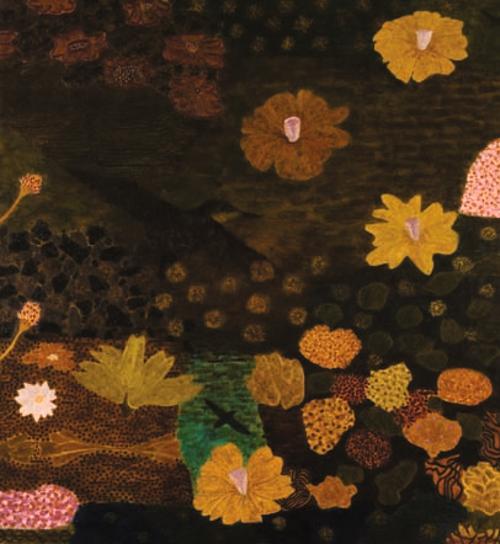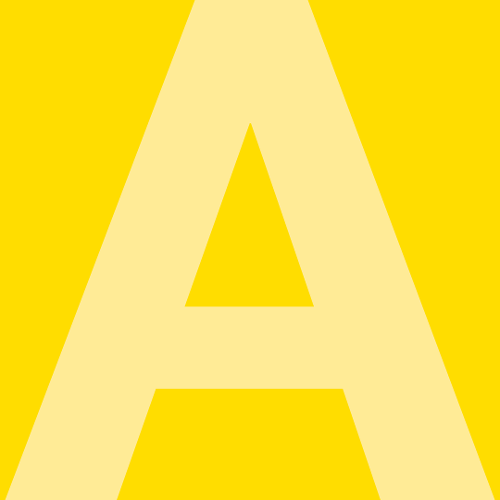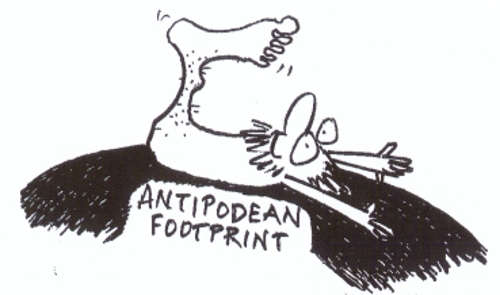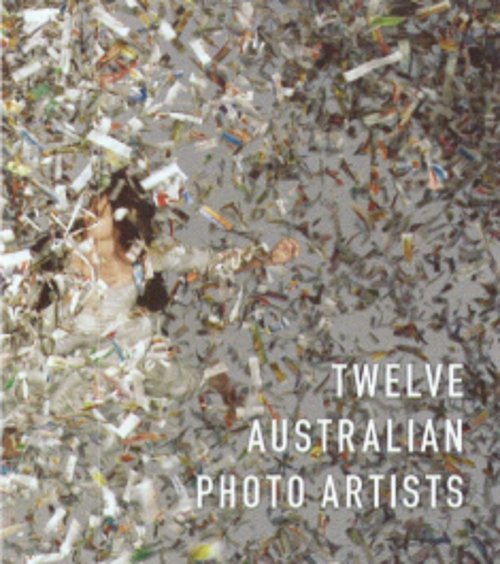Climate change has been expected for the last 20 years. As it progresses so the human race will try to find ways to cope. Businesses are now saying it is an opportunity rather than a threat and we can curb our emissions if we really try. Nevertheless, as trees are needed to eat carbon we asked ourselves if it was still ethical to print a magazine - how do you justify killing a tree to make a book?
But is the internet a free lunch? It emerges that giant server farms and the rare metals embodied in computers are turning the internet a paler shade of green. There is after all no such thing as a free lunch.
This collection of edited papers is a series of positions from movers and shakers in Australia involved in art publishing of all kinds. They are sourced from the Changing Climates in Arts Publishing forums which Artlink organised in 2009 to help us decide how to move forward into a carbon neutral future.
There were revelations and the odd epiphany. Creative Commons, an alternative form of copyright was explained. Some love it, some loathe it. Will information end up being free, and does that mean that art and writing should all be free? Mr Murdoch has a position on this, but was not consulted.
Librarians are in a uniquely divided position. Reborn as information hubs in the nineties their book collections are now targets of content aggregators like Google. Their responsibilities as preservers have swung back into view with the dawning realisation that digital culture is essentially ephemeral. Even an upgrade of an operating system can mean oblivion for precious material. So after all it is paper kept in a library that looks like the best option for real longevity.
Pacing the many transcripts in this issue from the Changing Climates in Art Publishing forums, are 16 pages of new visual interpretations of eco-research from a range of Australian artists. Some are emerging, some have established practices. The works were selected after a call was sent out to staff and postgraduate students at 12 art schools for art dealing with climate change. A recent exhibition at the Australian Embassy in Washington titled Impact by Degrees was the source of other strong new work.
Artists convey their grief at the loss of species. The sadness of a dead river full of dying trees is one which we may never learn to get used to. The shocking sequence Downstream, by Josie Starrs and Leon Cmielewski is a parable for our own indifference and inaction over the fate of the Murray River. Our cover image Inflatable Truth by Oliver Lawler is set in Tasmania's charred Styx Valley, notoriously clearfelled for woodchips.
With the art market excesses of 2004 – 2008 exposed for the tulip-mania that they were[1], perhaps some lessons have been learned. Art may be entertainment but it can no longer rely totally on branding techniques to provide a price range to suit the obscenely deep pockets of financiers turned art collectors. People are starving and wars will soon be fought over water. As a tasteless index of insanity the citizens of Sydney spend $607m per year on food which rots in their fridges and is chucked in the bin, an outlay which would feed a small African nation for a year.[2]
As politicians bluster and bicker, artists are getting active, picking up on the research done by environmental groups or using their own eyes to see, and then show others, what is happening around us.
Thanks to all the participants in the Artlink forums, to Copyright Agency Limited who funded the forums and to all the artists who submitted work to us for selection?
THE FORUMS
The Changing Climates in Arts Publishing forums organised by Artlink were held in Adelaide at the Bradley Forum, University of SA on 9 May 2009 chaired by Prof. Pat Hoffie, and at the offices of Copyright Agency Ltd in Sydney on 27 June 2009, chaired by Prof Colin Rhodes.
The forums were widely publicised, free of charge to all, uncensored, and very well-attended by individuals from artists and writers to librarians, designers, professors and students. A typical response was one of surprise at the depth of the knowledge on offer, the extreme relevance of the subject to everyone in the culture business, and the fact that the sessions on copyright (and copyleft) could be so sexy.
Artlink’s original intention was to publish the papers as a separate print on demand publication, but as early as the post-forum Chinese meal in Adelaide, the suggestion came from Senior Editor Stephanie Radok that we dedicate a whole issue of the magazine to this material. Further information on the forum topics, speakers and respondents as well as a podcast of Prof Sean Cubitt’s presentation and a transcript of question time in Sydney, is available at artlink.com.au.
Footnotes












